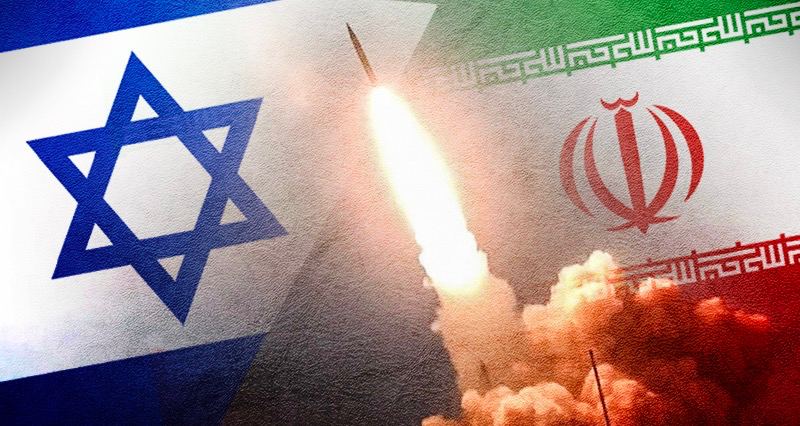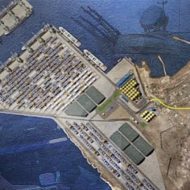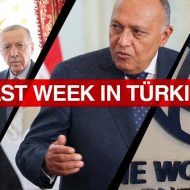April 13, 2024 is a date that needs to be noted in history books – both in the chapter dealing with the Middle East / West Asia as well as in the one that summarizes the international system in general.
On the night from April 12 to 13, the Islamic Republic of Iran has attacked the State of Israel. Here are some, preliminary, results.
1. Since 1973, the first direct state attack on Israel
In October 1973, the Arab Republics of Egypt and Syria conducted an attack on Israel, starting the so-called Yom-Kippur-War.
Since then, conflict around the state of Israel and Palestine continued, including various wars, occupations and withdrawals. But until today, the direct counterpart of Israel in these conflicts have been local, non-state organizations, such as the PLO, Hezbollah or must recently Hamas.
Except for missiles that Saddam Hussein fired on Israel during the Gulf War, April 12-13 constitutes the first time that a nation-state directly and openly attacks Israel’s sovereignty.
With repercussions to be discussed below, Iran does not recognize the existence of Israel, calling it “the Zionist entity”, and has put this position into practice.
2. Despite very favorable conditions, Israel was unable to defend itself
In retaliation for the attack on Iran’s embassy in Damascus on April 1, Tehran launched 170 drones, 30 cruise missiles, and 120 ballistic missiles against Israel’s territory.
Militarily, Israel had favorable defense conditions: The attack was announced since days. Iran “limited” the attack as a “punishment for Israeli crimes”. Mobilization by Iran’s allies, such as Hezbollah, was also limited. The Iranian representation in the UN declared the issue “resolved” via X, even before the missiles reached Israeli territory.
Despite that, Israel was not able to defend its territory successfully.
This is proven by the fact that the United States, United Kingdom, France and Jordan had to help Israel in its defense. The U.S. military had moved aircraft and ballistic missile defense to the region “over the course of the past week”, said President Biden.
RAF fighter jets shot down Iran drones, British Prime Minister Rishi Sunak said. The French navy had been deployed to defend Israel, while the Jordanian air force also assisted.
Despite the limited nature of the attack, its clear announcement and the gathering of, at least, 4 countries to defend Israel militarily, Iran succeeded in causing damage at an Israeli military base and panic among Israel’s population.
3. Re-statement of the US-Israel relation
Much has been written about Israeli Prime Minister Netanyahu’s objective to “drag the US into a regional war” against Iran.
Given the simple facts above, US President Biden’s statement after the attack sounds ironic:
“I told him (Prime Minister Netanyahu) that Israel demonstrated a remarkable capacity to defend against and defeat even unprecedented attacks – – sending a clear message to its foes that they cannot effectively threaten the security of Israel.”
They, pretty much “effectively”, did so.
US Secretary of Defense, Austin, joined the ‘irony’:
“At the direction of President Biden, U.S. forces in the Middle East on April 13 intercepted dozens of missiles and UAVs en route to Israel.”
Rather than irony in military evaluations, these were reminders that Israel’s security depends on US will.
In his statement, US President Biden condemned the “attacks”, but did not make any comment on the “attacker” – let alone using the attack as renewed evidence for a membership in an axis of evil.
Moreover, President Biden told Netanyahu the U.S. won’t support an Israeli counterattack on Iran – tells a White House official to Axios, so that Axios can tell it to the Israeli cabinet.
The positioning is indeed unprecedented and deserves an emphasis: Iran has attacked Israel with more than 300 missiles and the US President “convene my fellow G7 leaders to coordinate a united diplomatic (!!!) response.” (White House Statement)
In accordance with that, calls from to “urge restraint” rain on the Israeli government from Western governments, as did a day ago Iranian missiles.
Instead of punishing a rogue state, the EU High Representative Borell states his organization’s objective is “contribute to de-escalation and security of the region.”
The Israeli Foreign Ministry completed the “irony” by demanding “new sanctions on Iran”.
4. US-Iran relations continue despite Iranian attack on Israel
The other side of the coin are relations between the US and Iran.
“The president has been very clear, publicly so: We don’t seek a war with Iran,”, said White House spokesperson John Kirby on “This Week.”
Another “senior White House official” said to CNN that Biden had told Netanyahu “The US will not participate in any offensive operations against Iran”.
US House Intelligence Committee chairman Mike Turner said he does not believe the US should engage in direct military action against Iran.
On the other side, Iranian Foreign Minister declares having informed the US about the attacks beforehand.
Moreover, despite protests from Israeli lobby groups, the US had issued a visa to the Iranian FM to attend a UN Security Council meeting on Palestine on April 18.
Should Amir-Abdollahian without a last-minute-cancellation appear in the meeting in New York despite the attack, that would be a harsh slap into the face of Netanyahu and a recognition of the following fact:
5. Iran is back into the middle of diplomacy in West Asia
The so-called Middle East Quartet back then was composed of the UN, US, the EU and Russia. Later came Trump, who, with his Abraham Accords, tried a normalization between Arab states and Israel on the expense of Iran.
In the conflict around Gaza, several diplomatic initiatives were developed – all trying to exclude Iran.
This was a reflection of another, fundamental division of approach towards Israel: As already mentioned, Iran does not recognize the statehood of Israel. It demands a referendum on the entire Palestinian territory, including Israel’s area, on a future statehood. Hence it rejects the so-called two-state-solution.
The majority of the Arab states as well as Türkiye meanwhile follow the two-state-solution, with Türkiye for instance pursuing the project of a guarantorship for Palestine and thus a mediation between the sides.
With the recent attack, it is not difficult to guess that Iran gained support among the Arab masses who demand a strong position against Israel. Hamas immediately welcomed the attack as well.
By the time this article was written, the UN Security Council’s extraordinary meeting on the attack had not concluded.
Notwithstanding that, the calls for restraint even from Western countries and organizations such as NATO display: Formerly outlawed, Iran is back into the middle of West Asian diplomacy.
6. Another crack in the rules-based-order
After the Ukraine war, Iran’s attack on Israel displays another profound crack on the so-called rules-based-order.
The content of that order is that the US determines the rules, with the one about peace and war, and when an attack is considered ‘self-defense’ and when as an aggression, being the most fundamental.
Before the attack, US President Biden was asked what he’d say to Iran regarding an attack on Israel. He responded: “Don’t”.
But Iran “did”.
Let the G-7 discuss “diplomatic response” and the UNSC convene to extraordinary meetings: With its BRICS membership, its alliances with China and Russia and its regional and local allies, has Iran long crossed the line.









Leave a Reply